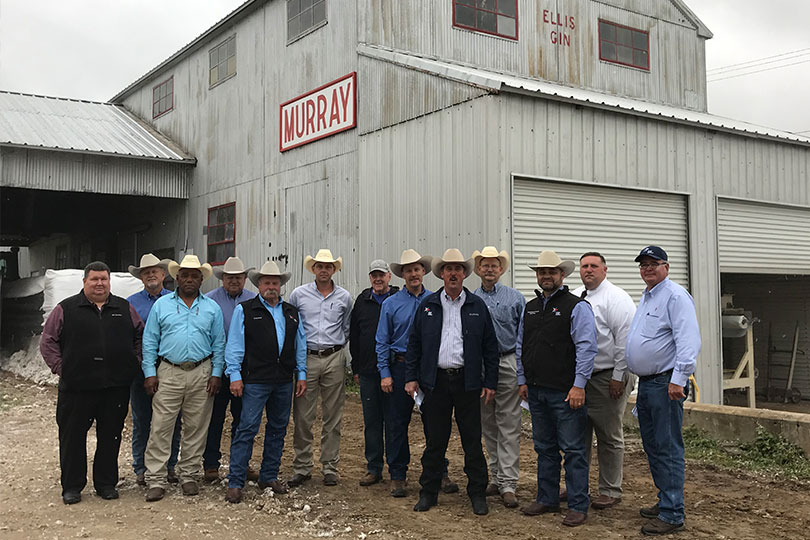Several Texas Farm Bureau (TFB) state directors and staff recently toured agricultural and industrial operations of the Manufacturing, Agribusiness, and Logistics (MAL) Division of the Texas Department of Criminal Justice (TDCJ) in Huntsville. The TFB group toured operations at the Ellis and Wynne Units on Nov. 7-8.
The MAL Agribusiness, Land & Minerals department manages 13 farm operations that oversee agricultural activities on 24 units. The department also manages two meat processing plants, a canning plant and a harvest equipment repair facility. The department also provides 41 units with security horses, which are used to oversee outside offender work squads and canine tracking programs.
The Crops and Equipment program manages the direct production of field and edible crops for use within the TDCJ. Edible crops are produced and sent to TDCJ food service departments to be prepared for meals or sent to the canning plant for processing. Field crops include grain and hay, which are processed to feed livestock. Cotton is transferred to MAL Texas Correctional Industries (TCI) textile mills to make offender clothing and bedding.
The Livestock program manages the commercial cow herds and stocker operation, brood mare and horse development operations, laying hen operations, farrow-to-finish swine operations, feed production facilities and meat processing plants. These operations provide beef, pork and eggs to TDCJ food service departments to be prepared and served.
The TFB group observed a cotton gin, swine operations, cattle operations, laying hen operations, a vegetable garden and field crops. They also toured the MAL TCI bus repair facility, garment factory, license plate plant, graphics facility, mattress factory and sign and plastics facility. The license plate plant is one of the world’s largest license plate manufacturers in terms of volume produced.
The MAL responsibilities also include providing offender work program participants with marketable job skills to assist with post-release employment readiness and to reduce recidivism through a coordinated program of job skills training and documentation of work history. In addition, goods and services produced by MAL help reduce the criminal justice department’s costs.

